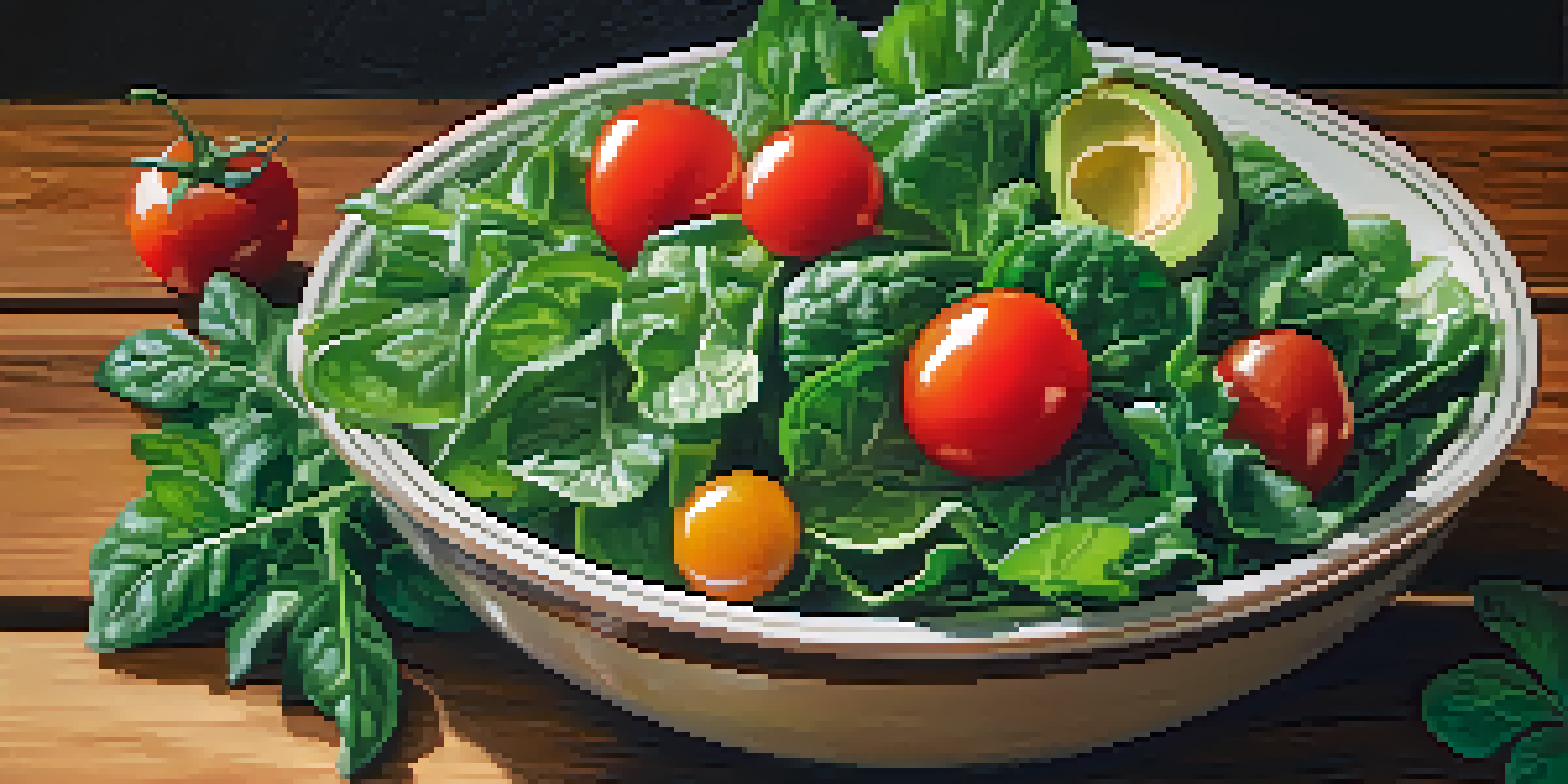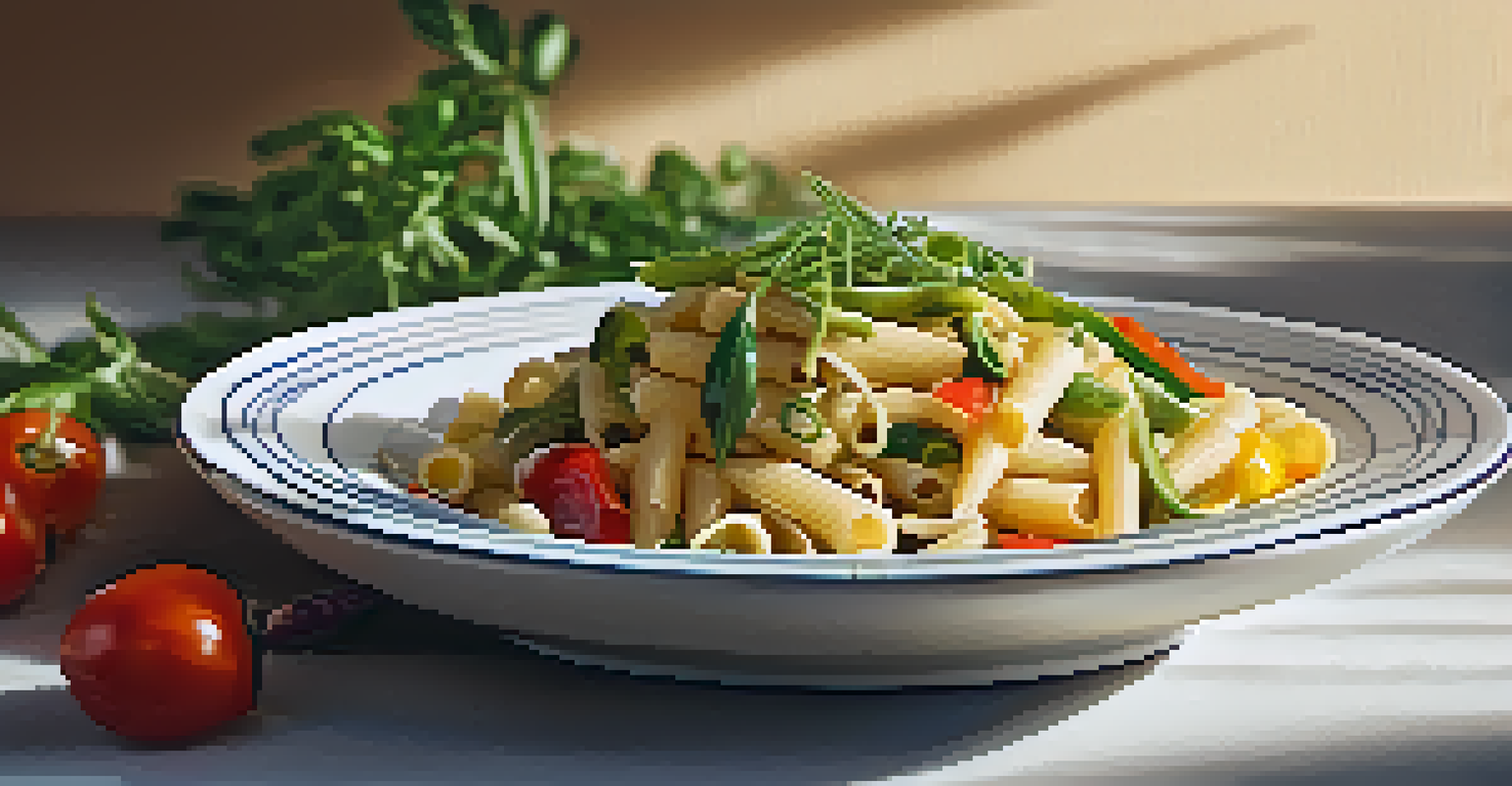Top 10 Heart-Healthy Vegan Foods You Should Include Today

1. Leafy Greens: Nature's Nutrient Powerhouses
Leafy greens like spinach, kale, and Swiss chard are packed with vitamins, minerals, and antioxidants that contribute to heart health. They are rich in vitamins A, C, and K, which help reduce inflammation and improve blood flow.
Let food be thy medicine and medicine be thy food.
These greens are also high in fiber, which aids in lowering cholesterol levels. Incorporating them into your meals can be as simple as tossing them into a salad or blending them into a smoothie.
Plus, their versatility means you can enjoy them in various dishes, making it easy to add them to your everyday diet.
2. Berries: Sweet Treats for Your Heart
Berries such as blueberries, strawberries, and raspberries are not only delicious but also incredibly beneficial for heart health. They are rich in antioxidants called flavonoids, which help lower blood pressure and improve artery function.

Eating a handful of berries daily can also reduce the risk of heart disease. You can enjoy them fresh, add them to oatmeal, or blend them into smoothies for a tasty heart-healthy snack.
Leafy Greens Boost Heart Health
Packed with vitamins and fiber, leafy greens like spinach and kale help reduce inflammation and lower cholesterol levels.
With their vibrant colors and sweet flavors, berries make it easy to indulge in healthy eating.
3. Whole Grains: Fuel for a Healthy Heart
Whole grains like quinoa, brown rice, and oats provide essential nutrients, including fiber, B vitamins, and antioxidants. These foods help lower cholesterol and reduce the risk of heart disease.
The greatest wealth is health.
Swapping out refined grains for whole grains in your diet can be a game changer. For example, try using quinoa instead of white rice or choosing whole-grain bread for your sandwiches.
Incorporating whole grains into your meals not only benefits your heart but also keeps you feeling full and satisfied.
4. Nuts and Seeds: Tiny Packages of Heart Health
Nuts and seeds, such as almonds, walnuts, chia seeds, and flaxseeds, are rich in healthy fats, protein, and fiber. These nutrients support heart health by lowering cholesterol levels and reducing inflammation.
Just a small handful of nuts can pack a powerful punch. You can sprinkle them on salads, blend them into smoothies, or enjoy them as a snack on their own.
Berries Fight Heart Disease
Rich in antioxidants, berries such as blueberries and strawberries can lower blood pressure and improve artery function.
Their crunchiness and flavor can elevate your meals while providing essential nutrients for your heart.
5. Avocados: Creamy Goodness for Your Heart
Avocados are not just delicious; they are also heart-healthy. Packed with monounsaturated fats, they help reduce bad cholesterol levels and promote overall heart health.
These creamy fruits are versatile and can be used in salads, spreads, or even desserts. For a quick heart-healthy boost, add slices of avocado to your toast or blend them into a creamy dressing.
Their rich texture and flavor make incorporating avocados into your diet a treat for your taste buds.
6. Legumes: Protein-Packed and Heart-Friendly
Legumes like lentils, chickpeas, and black beans are excellent sources of plant-based protein and fiber. They help lower cholesterol levels and improve heart health, making them a staple for any vegan diet.
Incorporating legumes into your meals can be as easy as adding them to soups, salads, or stir-fries. They provide a hearty texture and can easily replace meat in many recipes.
Nuts and Seeds Support Heart Health
High in healthy fats and protein, nuts and seeds help lower cholesterol levels and reduce inflammation when included in your diet.
Not only are legumes nutritious, but they are also budget-friendly and versatile, making them a smart choice for heart health.
7. Dark Chocolate: A Sweet Heart-Healthy Indulgence
Yes, you read that right! Dark chocolate, when enjoyed in moderation, can be good for your heart. Rich in antioxidants, particularly flavonoids, it can help improve blood flow and lower blood pressure.
Opt for chocolate that contains at least 70% cocoa to reap the health benefits without too much sugar. A small square can satisfy your sweet tooth while contributing to your heart health.

Dark chocolate can be a delightful addition to your diet, proving that healthy eating doesn't have to mean sacrificing flavor.
8. Olive Oil: Liquid Gold for Your Heart
Olive oil is renowned for its heart-healthy properties, primarily due to its high content of monounsaturated fats and antioxidants. It can help lower bad cholesterol levels while raising good cholesterol.
Drizzling olive oil over salads or using it for cooking can be a simple way to add flavor and health benefits to your meals. It’s a staple in the Mediterranean diet, known for its heart-protective effects.
Incorporating olive oil into your cooking routine can enhance your dishes while promoting heart health.